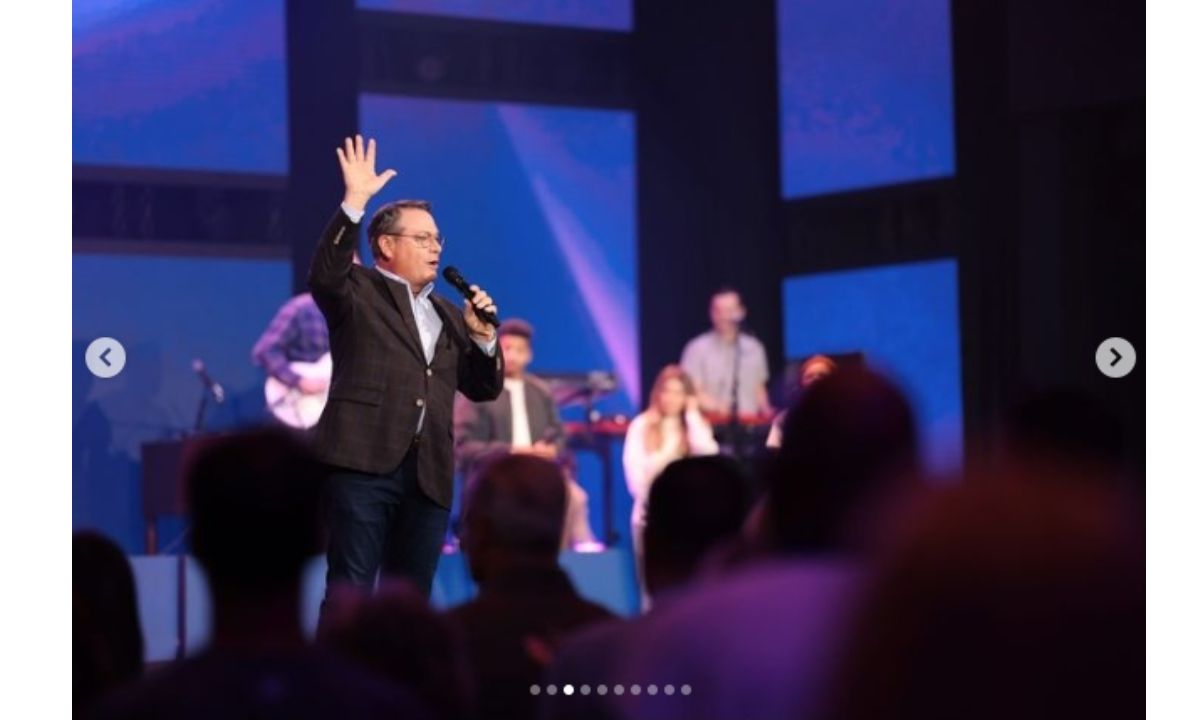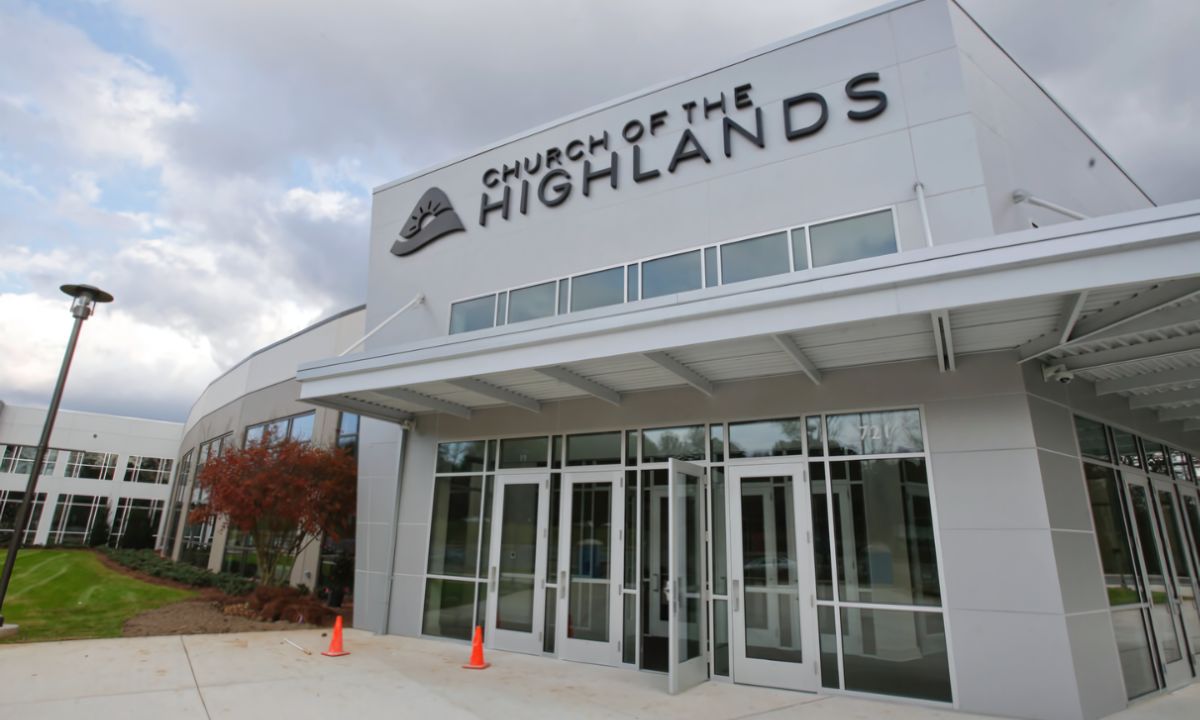In recent years, the Church of The Highlands has been a beacon of faith for many in Alabama. But the once-shining light of this megachurch has dimmed in the wake of a controversy surrounding its founder and senior pastor, Chris Hodges.
This article delves into the heart of the Church of The Highlands exposed scandal, exploring its impact on the congregation, the broader Christian community, and the future of one of Alabama’s most influential religious institutions.
The Rise of Church of The Highlands
Founded in 2001 by Pastor Chris Hodges, the Church of The Highlands quickly became a powerhouse in Alabama’s religious landscape. Its rapid growth was nothing short of remarkable:
- 2001: Started with 34 members
- 2005: Reached 1,000 members
- 2010: Grew to 10,000 members
- 2015: Expanded to 30,000 weekly attendees
- 2020: Over 50,000 weekly attendees across multiple campuses
Hodges’ charismatic leadership style and the church’s contemporary approach to worship attracted thousands. The church’s influence extended beyond Sunday services, with initiatives like Highlands College training the next generation of Christian leaders.
Innovative Approach to Ministry
The Church of The Highlands’ success can be attributed to several factors:
- Multi-site Model: Expanding to various locations across Alabama
- Tech-savvy Services: Utilizing live streaming and social media engagement
- Community Outreach: Establishing programs to serve local communities
- Contemporary Worship: Offering modern music and relatable sermons
- Small Group Focus: Fostering close-knit communities within the larger church
This innovative approach helped the Church of The Highlands Alabama become one of the fastest-growing churches in America, with a significant impact on the state’s religious landscape.
Community Impact
The church’s rapid growth allowed it to extend its influence beyond traditional church activities:
- Highlands College: Established to train future church leaders and missionaries
- Dream Center: Providing resources and support for underserved communities
- Serve Days: Regular community service events involving thousands of volunteers
- Global Missions: Supporting missionary work and church planting worldwide
These initiatives helped cement the Church of The Highlands’ reputation as a force for positive change in Alabama and beyond.
The Scandal Unfolds: Pastor Chris Hodges Controversy
The Pastor Chris Hodges controversy erupted in June 2020, sending shockwaves through the Christian community. The Alabama church controversy centered around Hodges’ social media activity, which some viewed as racially insensitive and politically charged.
Key events in the Highlands Church controversy:
- Hodges liked several social media posts from conservative personalities
- Posts were perceived as mocking protesters and downplaying racial issues
- Screenshots of the likes went viral, sparking outrage
- Birmingham Board of Education and Housing Authority severed ties with the church
- Local and national media picked up the story, amplifying the controversy
The Chris Hodges scandal quickly escalated, forcing the pastor and church leadership to address the growing backlash.
Timeline of the Controversy
| Date | Event |
| Late May 2020 | Hodges’ social media activity noticed by church members |
| June 1, 2020 | Screenshots of liked posts go viral on social media |
| June 3, 2020 | Birmingham Board of Education votes to terminate partnership |
| June 5, 2020 | Pastor Hodges issues first public apology |
| June 7, 2020 | Church of The Highlands holds town hall meeting to address concerns |
| June 9, 2020 | Birmingham Housing Authority ends partnership with the church |
| June 14, 2020 | Hodges delivers emotional sermon addressing the controversy |
| June 21, 2020 | Church announces formation of racial reconciliation task force |
This rapid sequence of events highlighted the volatile nature of the Pastor Hodges controversy Alabama, and how quickly it impacted the church’s standing in the community.
Digging Deeper: What Really Happened?
The Church of The Highlands exposed scandal revolved around Hodges’ social media activity during a time of heightened racial tensions following George Floyd’s death. The pastor’s likes on posts from Turning Point USA and its founder Charlie Kirk were interpreted as endorsements of conservative views on race and politics.
Hodges’ explanation included:
- Claiming he was unaware of the full context of the posts
- Stating his intention was not to offend or show bias
- Expressing regret for the hurt caused to the community
- Acknowledging the need for greater sensitivity to racial issues
However, the damage was done. The Pastor Hodges controversy Alabama had already begun to affect the church’s relationships and reputation.
Analyzing the Controversial Posts
The posts liked by Pastor Hodges included content that:
- Criticized the Black Lives Matter movement
- Mocked protesters involved in racial justice demonstrations
- Promoted conservative political viewpoints
- Downplayed systemic racism in America
These likes, whether intentional or not, struck a nerve in a community grappling with issues of racial equality and social justice.
The Role of Social Media in Modern Ministry
The Highlands Church controversy Alabama highlighted the complex relationship between religious leaders and social media:
- Increased Visibility: Social media platforms give pastors a wider reach
- Blurred Lines: Personal and professional boundaries can become unclear
- Rapid Spread: Controversial actions can go viral quickly
- Permanent Record: Online actions leave a lasting digital footprint
This incident serves as a cautionary tale for religious leaders navigating the digital landscape, emphasizing the need for thoughtful engagement with social media platforms.
The Fallout: Impact on Church of The Highlands Alabama
The fallout from the Pastor Chris Hodges controversy was swift and significant:
- Loss of partnerships with Birmingham City Schools and Housing Authority
- Negative media coverage both locally and nationally
- Decline in attendance and online engagement
- Calls for leadership changes within the church
- Divisions among church members over the appropriate response
- Scrutiny of the church’s stance on racial and political issues
The Church of The Highlands Alabama faced a crisis of trust, not only with its members but with the broader community it had long served.
Financial and Reputational Costs
While exact figures are not public, the Highlands Church controversy Alabama likely resulted in:
- Decreased donations from members and supporters
- Loss of revenue from canceled partnerships and programs
- Increased expenses for crisis management and PR efforts
- Potential long-term impact on church growth and expansion plans
Beyond the financial costs, the reputational damage to both Pastor Chris Hodges and the Church of The Highlands was substantial, threatening years of community goodwill.
Member Reactions
The controversy elicited a range of responses from church members:
- Some staunchly defended Hodges, viewing the backlash as an overreaction
- Others felt betrayed and called for more significant changes in leadership
- Many were caught in the middle, struggling to reconcile their faith with the controversy
- A number of members left the church, seeking alternative spiritual communities
These varied reactions underscored the complex nature of the scandal and its impact on the church community.
Broader Implications: Trust and Accountability in Megachurches
The Highlands Church controversy Alabama raised important questions about leadership, accountability, and the role of social media in religious institutions. Some key points to consider:
- Trust Issues: How can megachurches maintain transparency and accountability?
- Social Media Risks: Should religious leaders be more cautious about their online presence?
- Political Neutrality: Can churches remain apolitical in a polarized society?
- Racial Sensitivity: How can predominantly white churches better address issues of racial justice?
- Leadership Accountability: What mechanisms should be in place to hold church leaders accountable?
- Balancing Growth and Integrity: How can churches maintain their values while expanding rapidly?
These questions aren’t unique to the Church of The Highlands exposed scandal but reflect broader concerns in modern Christianity.
Case Study: Willow Creek Community Church
The Church of The Highlands controversy bears similarities to the 2018 scandal at Willow Creek Community Church in Illinois. In both cases:
- A charismatic founder faced allegations of misconduct
- The church’s reputation suffered significant damage
- Leadership changes were necessary to rebuild trust
- The incidents sparked broader conversations about accountability in megachurches
These parallels suggest a need for systemic changes in how large churches operate and maintain integrity.
The Road to Recovery
In the wake of the Pastor Hodges Alabama scandal, the church took several steps to address the controversy:
- Public apology from Pastor Chris Hodges
- Commitment to diversity training for leadership
- Establishment of a racial reconciliation task force
- Increased focus on community outreach and social justice initiatives
- Review and revision of church policies and governance structures
- Enhanced transparency in decision-making processes
- Engagement with external advisors on diversity and inclusion
| Recovery Initiative | Description | Impact |
| Public Apology | Hodges addressed the congregation and public | Mixed reception; some felt it was sincere, others too late |
| Diversity Training | Mandatory for all church leaders and staff | Ongoing process to improve cultural sensitivity |
| Reconciliation Task Force | Team dedicated to improving racial equity within the church | Early stages; effectiveness yet to be determined |
| Community Outreach | Renewed focus on serving diverse communities | Slowly rebuilding trust with local organizations |
| Policy Review | Examination of church governance and accountability measures | Potential for long-term structural changes |
| External Advisors | Engagement with experts on diversity and inclusion | Bringing in outside perspectives to guide recovery efforts |
Rebuilding Community Ties
One of the most challenging aspects of recovery for the Church of The Highlands has been rebuilding relationships with community partners. This process has involved:
- Reaching out to local leaders and organizations
- Listening sessions with affected communities
- Collaborative projects focusing on racial reconciliation
- Increased transparency in church operations and decision-making
- Financial investments in underserved communities
“Rebuilding trust is a slow process, but we’re committed to doing the work necessary to heal and grow stronger as a community.” – Church of The Highlands Leadership Statement
Long-term Strategy for Change
To address the root causes of the controversy, the church developed a long-term strategy:
- Diversifying Leadership: Actively recruiting and promoting leaders from diverse backgrounds
- Cultural Competency Training: Ongoing education for staff and volunteers
- Community Advisory Board: Establishing a diverse group of community leaders to provide guidance
- Transparent Communication: Regular updates on progress and challenges
- Revised Social Media Policies: Clear guidelines for online behavior by church leaders
These initiatives aim to create lasting change within the church culture and prevent future incidents.
Lessons Learned from the Church Controversy Alabama
View this post on Instagram
The Highlands Church controversy offers several lessons for religious institutions:
- Transparency is crucial: Churches must be open about their leaders’ actions and views.
- Social media awareness: Religious leaders should be mindful of their online presence.
- Proactive diversity efforts: Churches should actively work towards inclusivity.
- Community engagement: Strong community ties can help weather controversies.
- Rapid response: Quick, genuine responses to controversies can mitigate damage.
- Continuous education: Church leaders need ongoing training on social issues.
- Accountability structures: Clear mechanisms for holding leadership accountable are essential.
- Diverse perspectives: Incorporating a range of voices in decision-making processes is vital.
- Humility in leadership: Leaders must be willing to acknowledge mistakes and learn from them.
- Balancing growth and values: Rapid expansion should not come at the cost of core principles.
These lessons extend beyond the Church of The Highlands exposed scandal, offering guidance for religious organizations navigating similar challenges.
The Future of Church of The Highlands
As the dust settles on the Pastor Chris Hodges controversy, the future of Church of The Highlands remains uncertain. The church faces several challenges:
- Rebuilding trust with members and the community
- Addressing concerns about political neutrality
- Balancing growth with accountability
- Navigating the complex landscape of race relations in America
- Maintaining its mission while adapting to societal changes
- Retaining and attracting members in a post-controversy environment
“The true test of a church isn’t just in its growth, but in how it handles adversity and learns from its mistakes.” – Anonymous Church Leader
The path forward for Church of The Highlands will likely involve continued efforts at reconciliation, transparency, and community engagement. Only time will tell if these efforts will be enough to restore the church’s once-sterling reputation.
Potential Scenarios
Looking ahead, several scenarios could unfold:
- Full Recovery: The church successfully rebuilds trust and returns to growth.
- Partial Recovery: Some damage remains, but the church stabilizes at a smaller size.
- Continued Decline: Ongoing challenges lead to further losses in membership and influence.
- Major Restructuring: Significant changes in leadership and structure reshape the church.
- Splintering: The controversy leads to the formation of breakaway congregations.
The outcome will depend on the effectiveness of the church’s recovery efforts and the willingness of the community to embrace these changes.
Broader Impact on Megachurch Culture
The Church of The Highlands controversy may have lasting effects on megachurch culture in America:
- Increased scrutiny of pastors’ personal beliefs and actions
- Greater emphasis on diverse leadership and inclusive practices
- More robust accountability measures for church leaders
- Reevaluation of the role of politics in religious institutions
- Renewed focus on local community engagement over rapid expansion
These shifts could lead to a more transparent and inclusive megachurch model in the future.
Conclusion
The Church of The Highlands exposed scandal serves as a stark reminder of the challenges facing modern religious institutions. From the initial Pastor Chris Hodges controversy to the ongoing efforts at reconciliation, this Alabama church controversy has sparked important conversations about race, politics, and accountability in religious leadership.
As the church works to rebuild trust and move forward, its journey offers valuable lessons for other religious organizations navigating the complex intersections of faith, politics, and social justice in today’s world.
What are your thoughts on the Church of The Highlands controversy? How can religious institutions better address issues of race and politics? Share your views in the comments below.
Also Read:
Pastor Chris Hodges Scandal: Why This Happened and Apology?

Howdy is the founder and lead writer behind the independent blog tvspluto.com



